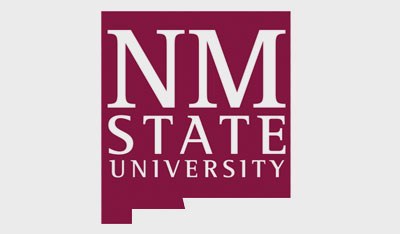The Territorial Legislature of 1889 established the land-grant Agricultural College and Experiment Station, which officially opened on January 21, 1890. During its first full academic year, the college became known as the New Mexico College of Agriculture and Mechanic Arts, the first degree-granting institution in the Territory.

Today, the New Mexico State University System is the state's land-grant university, serving the educational needs of New Mexico's diverse population through comprehensive programs of education, research, extension education, and public service.
New Mexico State University sits on a 900-acre campus and enrolls more than 15,000 students from 49 states and 89 foreign countries. NMSU is a NASA Space Grant College and is home to the very first Honors College in New Mexico. A Hispanic-serving institution, NMSU serves a multi-cultural population of students and community members across the state at five campuses, a satellite learning center in Albuquerque, cooperative extension offices located in each of New Mexico's 33 counties, and 12 agriculture research and science centers.
University research strengths/ areas of expertise related to activities in Consortium
Within its seven colleges, NMSU has established interdisciplinary research clusters that build on institutional strengths and respond to local, regional, and national needs in areas such as natural resource sustainability, information sciences and security, space and aerospace programs, biosciences, and border-related programs.
NMSU is truly a reflection of the region's vibrant communities - an exciting place to tackle challenges, find answers to important issues and prepare for the future. For generations, our researchers have made important discoveries in agriculture, engineering, science and many other fields.
NMSU's Cooperative Extension Service (CES) is central to carrying out our land-grant mission of delivering research-based information and practices to the diverse population of New Mexico. CES provides the people of New Mexico with practical, sound science and programs to improve their quality of life.
Coordinating Council Member
Associate Professor


